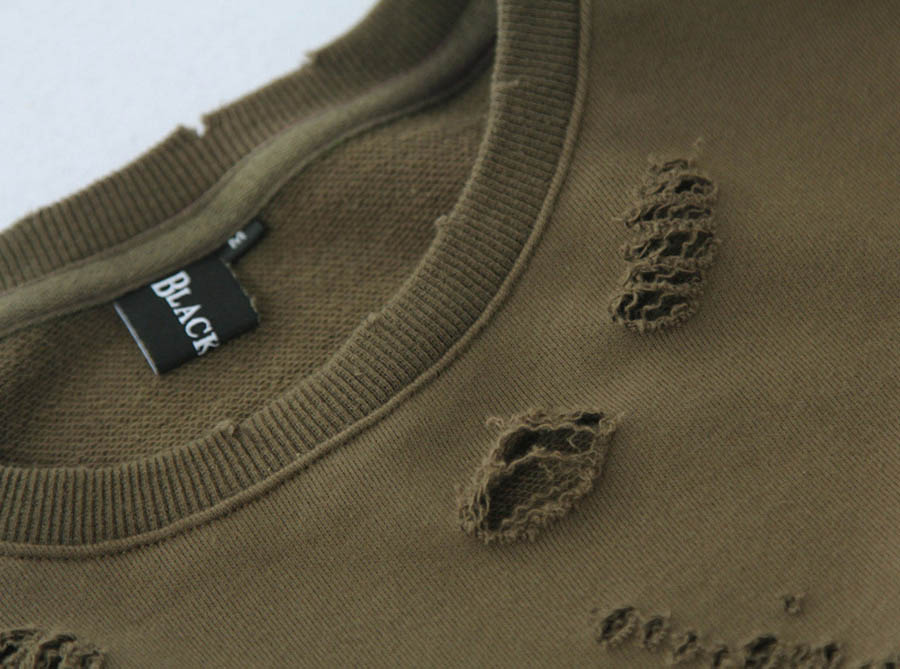بسم الله الرحمن الرحيم
Assalamu Alaikum.
So, has it worn out?
No, I’m not talking about your clothes, I’m talking about your iman (faith).
Can iman wear out, you ask? Unfortunately, yes.
عن ابن عمرو رضي الله عنهما قال: قال النبي صلى الله عليه وسلم: إن الإيمان ليخلق في جوف أحدكم كما يخلق الثوب ، فاسألوا الله تعالى : أن يجدد الإيمان في قلوبكم
Ibn Amr (radiallahu anhuma) narrated: The Prophet (salallahu alaihi wasallam) said: “Iman (faith) wears out in the heart of any one of you just as garments wear out, so ask Allah to renew the faith in your hearts.” [Sahih Al-Jaami, Hadeeth No. 1590.]
Imagine if you got some new clothes.

They look nice, don’t they?
Now, imagine if this is what happened to them:
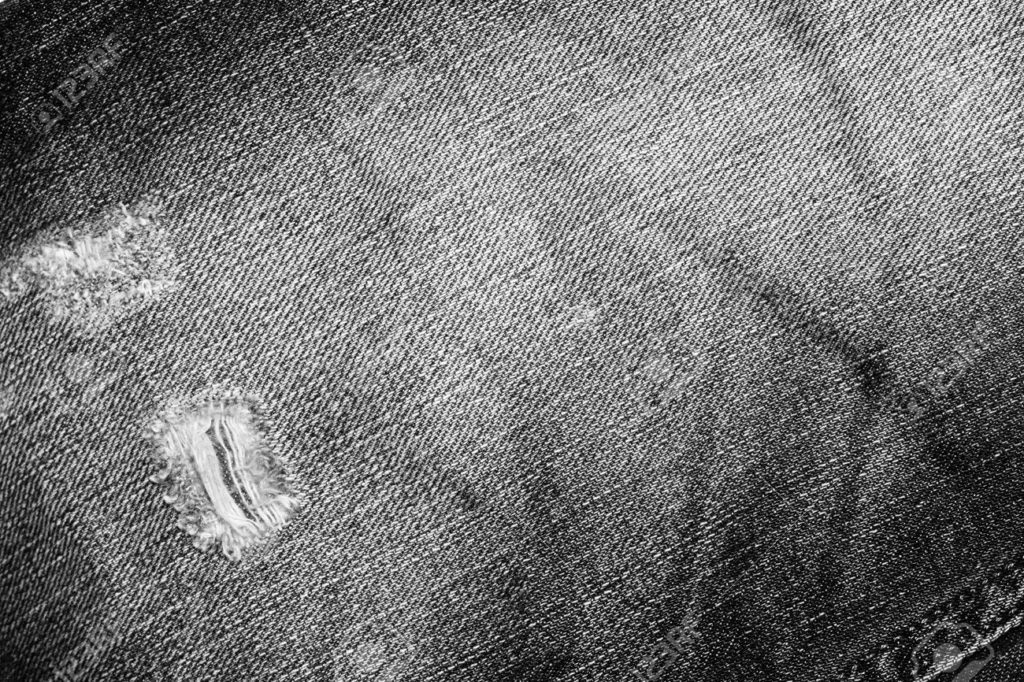
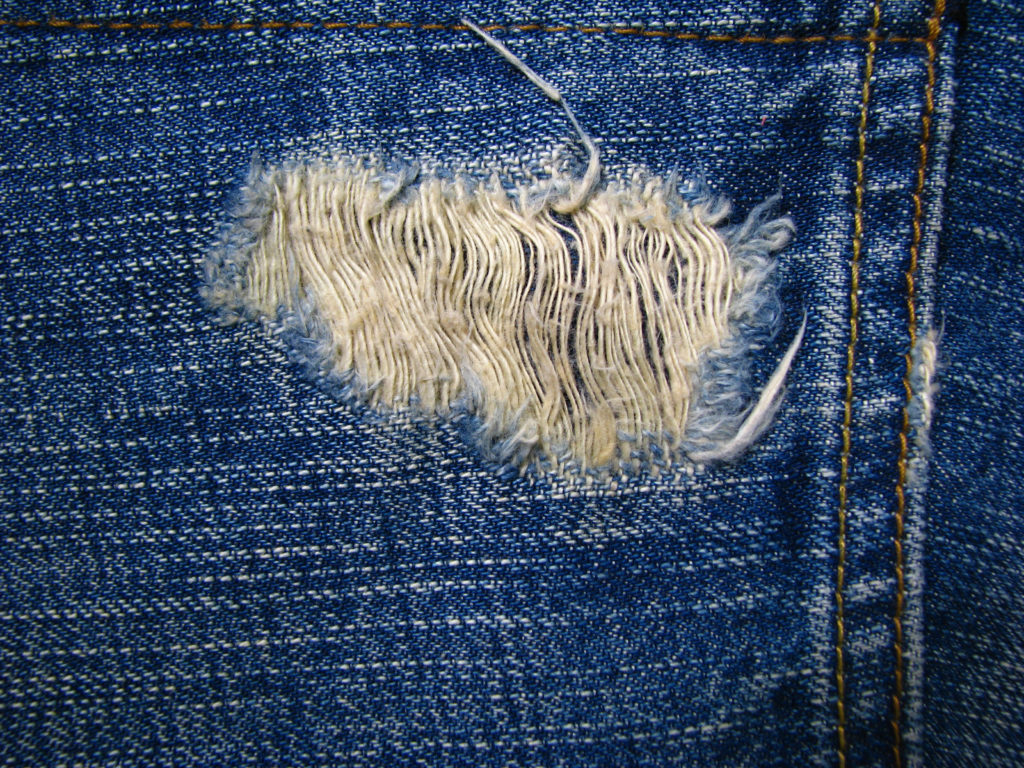
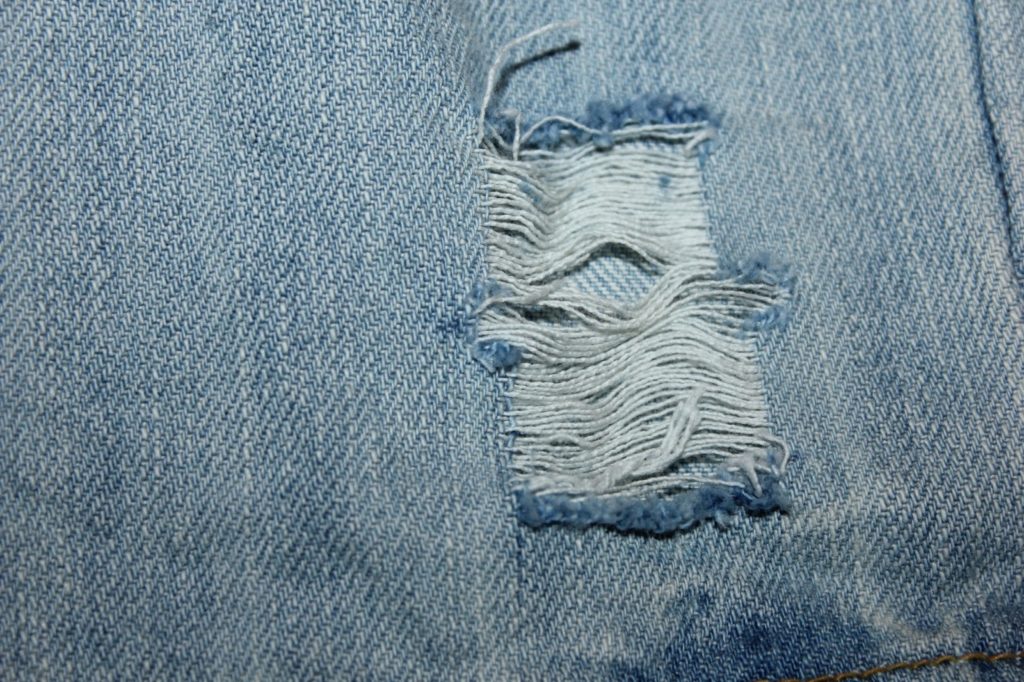
Would you keep wearing these clothes as if nothing had happened? Or would you see if you could stitch up the torn parts or maybe buy new clothes? [Unfortunately, there are many people today who prefer wearing torn clothes!]
We’re so concerned about our clothes that we always take good care of them and always make sure to shop for new ones.
Well, our iman has more right to be taken care of. Unfortunately, we cannot buy a new set of iman, so when our iman starts to wear out, we need to ask Allah to renew it as advised by the Prophet (sallallahu alaihi wasallam).
Some people don’t bother to do this. Why? Because they are not afraid of falling in to kufr (disbelief).
Now, some of you might be thinking “Wait, are we supposed to fear such a thing? Doesn’t strong iman mean not fearing kufr?”
Actually, no. Strong iman would mean that one fears falling into kufr.
وَإِذْ قَالَ إِبْرَاهِيمُ رَبِّ اجْعَلْ هَـٰذَا الْبَلَدَ آمِنًا وَاجْنُبْنِي وَبَنِيَّ أَن نَّعْبُدَ الْأَصْنَامَ
And (remember) when Ibrahim said: “O my Lord! Make this city (Makkah) one of peace and security, and keep me and my sons away from worshipping idols. [Surah Ibrahim (14) : 35]
Ibrahim (alaihissalam) was the Khaleel (close friend) of Allah, the father of many Prophets and also the second greatest man EVER, after Muhammad (sallallahu alaihi wasallam).
And he was afraid of falling into idol worship. THAT is iman.
Many people seem to think that iman is something static and that it does not change. That’s because they don’t know the definition of iman.
Imam Ibn Qudaamah (rahimahullah) stated the definiton of iman in his book Lumatul Itiqaad (The Radiance of Faith):
“Iman is a statement of the tongue, deeds according to the pillars, and affirmation in the heart. It increases with obedience and decreases with disobedience.”
[Note: Deeds according to the pillars are actions of the limbs. The affirmation of the heart is its belief and compliance. Belief as in believing in what has been sent down to us and compliance as in complying with what we have been ordered to do.]
So, as you can see, iman relates to belief, statement and action, and it can increase or decrease.
A proof that iman relates to belief, statement and action is in the following hadeeth:
عَنْ أَبِي هُرَيْرَةَ، قَالَ قَالَ رَسُولُ اللَّهِ صلى الله عليه وسلم : الإِيمَانُ بِضْعٌ وَسَبْعُونَ أَوْ بِضْعٌ وَسِتُّونَ شُعْبَةً فَأَفْضَلُهَا قَوْلُ لاَ إِلَهَ إِلاَّ اللَّهُ وَأَدْنَاهَا إِمَاطَةُ الأَذَى عَنِ الطَّرِيقِ وَالْحَيَاءُ شُعْبَةٌ مِنَ الإِيمَانِ
Abu Hurairah (radiallahu anhu) narrated: The Prophet (sallallahu alaihi wasallam) said: Iman has over seventy branches – or over sixty branches – the uppermost of which is the declaration: ‘None has the right to be worshipped but Allah’; and the least of which is the removal of harmful objects from the road, and modesty is a branch of iman.” [Sahih Muslim, Hadeeth No. 56]
Three examples have been mentioned in this hadeeth:
1) The declaration of “Laa ilaaha illallah” (none has the right to be worshipped except Allah) – This is a statement of the tongue.
2) The removal of harmful objects from the road – This is an action of the limbs.
3) Hayaa (modesty) – This is an action of the heart.
So, this hadeeth proves that iman is belief AND statement AND action. [Please note that this hadeeth refers to iman in terms of actions. As for the six pillars of Iman, that is iman in terms of creed.]
Now, what about the second part of Iman Ibn Qudaamah’s statement? He said that iman increases and decreases. Well, the following ayaat (verses) are proof of that:
وَإِذَا مَا أُنزِلَتْ سُورَةٌ فَمِنْهُم مَّن يَقُولُ أَيُّكُمْ زَادَتْهُ هَـٰذِهِ إِيمَانًا ۚ فَأَمَّا الَّذِينَ آمَنُوا فَزَادَتْهُمْ إِيمَانًا وَهُمْ يَسْتَبْشِرُونَ
And whenever there comes down a Surah (chapter from the Quran), some of them (hypocrites) say: “Which of you has had his iman (faith) increased by it?” As for those who believe, it has increased their iman, and they rejoice. [Surah At-Tawbah (9) : 124]
إِنَّمَا الْمُؤْمِنُونَ الَّذِينَ إِذَا ذُكِرَ اللَّـهُ وَجِلَتْ قُلُوبُهُمْ وَإِذَا تُلِيَتْ عَلَيْهِمْ آيَاتُهُ زَادَتْهُمْ إِيمَانًا وَعَلَىٰ رَبِّهِمْ يَتَوَكَّلُونَ
The believers are only those who, when Allah is mentioned, feel a fear in their hearts and when His Verses (this Quran) are recited unto them, they (i.e. the Verses) increase their iman (faith); and they put their trust in their Lord (Alone). [Surah Al-Anfal (8) : 2]
هُوَ الَّذِي أَنزَلَ السَّكِينَةَ فِي قُلُوبِ الْمُؤْمِنِينَ لِيَزْدَادُوا إِيمَانًا مَّعَ إِيمَانِهِمْ ۗ وَلِلَّـهِ جُنُودُ السَّمَاوَاتِ وَالْأَرْضِ ۚ وَكَانَ اللَّـهُ عَلِيمًا حَكِيمًا
He it is Who sent down As-Sakinah (calmness and tranquillity) into the hearts of the believers, that they may grow more in Faith along with their (present) Faith. And to Allah belong the hosts of the heavens and the earth, and Allah is Ever All-Knower, All-Wise. [Surah Al-Fath (48) : 4]
It can be seen from these ayaat, that iman does indeed increase and decrease. [Another thing that can be seen from the first two ayaat is that the Quran causes iman to increase.]
People often complain that they feel that their iman is low. If that’s the case, they need to increase it. How does one increase their iman? By doing good deeds.
Good deeds lead to an increase in iman which leads to a desire to do even more good deeds which results in even more increase in iman!
On the other hand, bad deeds lead to a decrease in iman which unfortunately causes one to sin even more, resulting in a larger drop in iman.
Unfortunately, many people don’t accept this. They think that their actions are not linked to their iman. When they are advised to work on their iman and do good deeds, their reply is usually: “Don’t judge me, I have a clean heart.”
Well, I would reply to that statement with the following points:
1. A person is judged by their actions, not by what is in their heart
We judge each other based on our actions. Why? Because this is what we were commanded to do by Umar (radiallahu anhu).
عن عَبْدَ اللَّهِ بْنَ عُتْبَةَ، قَالَ سَمِعْتُ عُمَرَ بْنَ الْخَطَّابِ ـ رضى الله عنه ـ يَقُولُ إِنَّ أُنَاسًا كَانُوا يُؤْخَذُونَ بِالْوَحْىِ فِي عَهْدِ رَسُولِ اللَّهِ صلى الله عليه وسلم، وَإِنَّ الْوَحْىَ قَدِ انْقَطَعَ، وَإِنَّمَا نَأْخُذُكُمُ الآنَ بِمَا ظَهَرَ لَنَا مِنْ أَعْمَالِكُمْ، فَمَنْ أَظْهَرَ لَنَا خَيْرًا أَمِنَّاهُ وَقَرَّبْنَاهُ، وَلَيْسَ إِلَيْنَا مِنْ سَرِيرَتِهِ شَىْءٌ، اللَّهُ يُحَاسِبُهُ فِي سَرِيرَتِهِ، وَمَنْ أَظْهَرَ لَنَا سُوءًا لَمْ نَأْمَنْهُ وَلَمْ نُصَدِّقْهُ، وَإِنْ قَالَ إِنَّ سَرِيرَتَهُ حَسَنَةٌ
ِAbdullah ibn Utbah narrated: I heard Umar bin Al-Khattab (radiallahu anhu): People were (sometimes) judged by the revealing of a Divine Inspiration during the lifetime of Allah’s Messenger (sallallahu alaihi wasallam) but now there is no longer any more (new revelation). Now we judge you by the deeds you practice publicly, so we will trust and favor the one who does good deeds in front of us, and we will not call him to account about what he is really doing in secret, for Allah will judge him for that; but we will not trust or believe the one who presents to us with an evil deed even if he claims that his intentions were good. [Sahih Al-Bukhari, Volume 3, Hadeeth No. 809]
By the way, I’m not asking anyone to go around judging others. I’m simply pointing out that we are all to be judged by our outer actions.
Now, some may point to the following hadeeth as a rebuttal of what I just wrote:
عَنْ أَبِي هُرَيْرَةَ، قَالَ قَالَ رَسُولُ اللَّهِ صلى الله عليه وسلم : إِنَّ اللَّهَ لاَ يَنْظُرُ إِلَى صُوَرِكُمْ وَأَمْوَالِكُمْ وَلَكِنْ يَنْظُرُ إِلَى قُلُوبِكُمْ وَأَعْمَالِكُمْ
Abu Hurairah (radiallahu anhu) reported Allah’s Messenger (sallallahu alaihi wasallam) as saying: Verily Allah does not look at your appearance and your wealth but He looks at your heart and your actions. [Sahih Muslim, Hadeeth No. 6221]
Actually, this hadeeth confirms what I wrote. It clearly states that Allah looks at one’s heart AND one’s actions.
A point to note about this hadeeth: Things like wearing hijab (veiling), growing the beard and plucking one’s eyebrows (something which is prohibited) are from one’s actions, not from one’s appearance. Appearance would refer to someone’s beauty or features, so please don’t misunderstand this hadeeth.
2. We need to understand what a clean heart is
People tend to misunderstand what a clean heart actually is.
Allah says:
يَوْمَ لَا يَنفَعُ مَالٌ وَلَا بَنُونَ
إِلَّا مَنْ أَتَى اللَّـهَ بِقَلْبٍ سَلِيمٍ
The Day whereon neither wealth nor sons will avail. Except him who brings to Allah a clean heart. [Surah Ash-Shuara (26) : 88-89]
Imam Ibn Kathir (rahimahullah) says in his explanation of the latter verse:
إِلاَّ مَنْ أَتَى اللَّهَ بِقَلْبٍ سَلِيمٍ
(Except him who brings to Allah a clean heart. ) meaning, free from any impurity or Shirk. Ibn Sirin said, “The clean heart knows that Allah is true, that the Hour will undoubtedly come and that Allah will resurrect those who are in the graves.” Said bin Al-Musayyib said, “The clean heart is the sound heart.” This is the heart of the believer, for the heart of the disbeliever and the hypocrite is sick. Allah says:
فِى قُلُوبِهِمْ مَّرَضٌ
(In their hearts is a disease) (2:10). Abu Uthman An-Nisaburi said, “It is the heart that is free from innovation and is content with the Sunnah.”
So, this is what a clean heart is according to the scholars of Islam. Unfortunately, there are many people today that are involved in a lot of activities that are contrary to the Sunnah, like rubbing stones for blessings, tying strings and cutting lemons to ward off evil, praying to the dead, having bad thoughts about Allah, reading horoscopes, swearing by other than Allah, using jinn to find out who did magic on a person, etc, yet they claim that their hearts are clean. And how is that? These are not signs of a sound heart.
And what is even more amazing is that in many lectures about the “purification of the heart”, applying tawheed (worshipping Allah alone) and following the sunnah are never mentioned although:
1) Shirk (worshipping other than Allah) and bidah (innovations) are the main problems that people have today.
2) They (shirk and bidah) are worse than sins like envy or gossiping (although these are bad too) and have a worse effect on one’s iman and one’s heart.
3) The Prophet (sallallahu alaihi wasallam) spent ten years talking solely about tawheed.
It’s sad, really. Tawheed and the Sunnah are such beautiful things yet most people run away from them.
3. It’s really, really NOT befitting to praise oneself
It’s not correct for someone to say that they have a clean heart because that is praising oneself and we have been ordered not to do that.
وَلِلَّـهِ مَا فِي السَّمَاوَاتِ وَمَا فِي الْأَرْضِ لِيَجْزِيَ الَّذِينَ أَسَاءُوا بِمَا عَمِلُوا وَيَجْزِيَ الَّذِينَ أَحْسَنُوا بِالْحُسْنَى
الَّذِينَ يَجْتَنِبُونَ كَبَائِرَ الْإِثْمِ وَالْفَوَاحِشَ إِلَّا اللَّمَمَ ۚ إِنَّ رَبَّكَ وَاسِعُ الْمَغْفِرَةِ ۚ هُوَ أَعْلَمُ بِكُمْ إِذْ أَنشَأَكُم مِّنَ الْأَرْضِ وَإِذْ أَنتُمْ أَجِنَّةٌ فِي بُطُونِ أُمَّهَاتِكُمْ ۖ فَلَا تُزَكُّوا أَنفُسَكُمْ ۖ هُوَ أَعْلَمُ بِمَنِ اتَّقَىٰ
And to Allah belongs all that is in the heavens and all that is in the earth, that He may requite those who do evil with that which they have done (i.e. punish them in Hell), and reward those who do good, with what is best (i.e. Paradise). Those who avoid great sins and Al-Fawaahish (illegal sexual intercourse, etc.) except the small faults, verily, your Lord is of vast forgiveness. He knows you well when He created you from the earth (Adam), and when you were fetuses in your mothers’ wombs. So ascribe not purity to yourselves. He knows best him who fears Allah and keep his duty to Him [i.e. those who are Al-Muttaqoon (pious)]. [Surah An-Najm (53) : 31-32]
A true believer thinks of his sins as being a lot, not a little.
عَنِ الْحَارِثِ بْنِ سُوَيْدٍ، حَدَّثَنَا عَبْدُ اللَّهِ، حَدِيثَيْنِ أَحَدُهُمَا عَنِ النَّبِيِّ صلى الله عليه وسلم وَالآخَرُ عَنْ نَفْسِهِ، قَالَ : إِنَّ الْمُؤْمِنَ يَرَى ذُنُوبَهُ كَأَنَّهُ قَاعِدٌ تَحْتَ جَبَلٍ يَخَافُ أَنْ يَقَعَ عَلَيْهِ، وَإِنَّ الْفَاجِرَ يَرَى ذُنُوبَهُ كَذُبَابٍ مَرَّ عَلَى أَنْفِهِ . فَقَالَ بِهِ هَكَذَا قَالَ أَبُو شِهَابٍ بِيَدِهِ فَوْقَ أَنْفِهِ. ثُمَّ قَالَ : لَلَّهُ أَفْرَحُ بِتَوْبَةِ عَبْدِهِ مِنْ رَجُلٍ نَزَلَ مَنْزِلاً، وَبِهِ مَهْلَكَةٌ، وَمَعَهُ رَاحِلَتُهُ عَلَيْهَا طَعَامُهُ وَشَرَابُهُ، فَوَضَعَ رَأْسَهُ فَنَامَ نَوْمَةً، فَاسْتَيْقَظَ وَقَدْ ذَهَبَتْ رَاحِلَتُهُ، حَتَّى اشْتَدَّ عَلَيْهِ الْحَرُّ وَالْعَطَشُ أَوْ مَا شَاءَ اللَّهُ، قَالَ أَرْجِعُ إِلَى مَكَانِي. فَرَجَعَ فَنَامَ نَوْمَةً، ثُمَّ رَفَعَ رَأْسَهُ، فَإِذَا رَاحِلَتُهُ عِنْدَهُ
Narrated Al-Harith bin Suwaid: Abdullah bin Masud (radiallahu anhu) related to us two narrations: One from the Prophet (sallallahu alaihi wasallam) and the other from himself, saying: A believer sees his sins as if he were sitting under a mountain which, he is afraid, may fall on him; whereas the wicked person considers his sins as flies passing over his nose and he just drives them away like this.” Abu Shihab (the sub-narrator) moved his hand over his nose in illustration. (Ibn Masud added): Allah’s Messenger (sallallahu alaihi wasallam) said, “Allah is more pleased with the repentance of His slave than a man who encamps at a place where his life is jeopardized, but he has his riding beast carrying his food and water. He then rests his head and sleeps for a short while and wakes to find his riding beast gone. (He starts looking for it) and suffers from severe heat and thirst or what Allah wished (him to suffer from). He then says, ‘I will go back to my place.’ He returns and sleeps again, and then (getting up), he raises his head to find his riding beast standing beside him.” [Sahih Al-Bukhari, Volume 8, Hadeeth No. 320]
4. Evil actions point to a problem in the heart
Someone who keeps sinning can’t say that they have a clean heart. Why not? Because all that sinning implies that there is something wrong with their heart.
عَنْ النُّعْمَانَ بْنَ بَشِيرٍقال: سَمِعْتُ رَسُولَ اللَّهِ صلى الله عليه وسلم يَقُولُ : الْحَلاَلُ بَيِّنٌ وَالْحَرَامُ بَيِّنٌ، وَبَيْنَهُمَا مُشَبَّهَاتٌ لاَ يَعْلَمُهَا كَثِيرٌ مِنَ النَّاسِ، فَمَنِ اتَّقَى الْمُشَبَّهَاتِ اسْتَبْرَأَ لِدِيِنِهِ وَعِرْضِهِ، وَمَنْ وَقَعَ فِي الشُّبُهَاتِ كَرَاعٍ يَرْعَى حَوْلَ الْحِمَى، يُوشِكُ أَنْ يُوَاقِعَهُ. أَلاَ وَإِنَّ لِكُلِّ مَلِكٍ حِمًى، أَلاَ إِنَّ حِمَى اللَّهِ فِي أَرْضِهِ مَحَارِمُهُ، أَلاَ وَإِنَّ فِي الْجَسَدِ مُضْغَةً إِذَا صَلَحَتْ صَلَحَ الْجَسَدُ كُلُّهُ، وَإِذَا فَسَدَتْ فَسَدَ الْجَسَدُ كُلُّهُ. أَلاَ وَهِيَ الْقَلْبُ
An-Numan ibn Bashir (radiallahu anhu) narrated: I heard the Messenger of Allah (sallallahu alaihi wasallam) saying, “What is lawful is clear and what is unlawful is clear, but between them are certain doubtful things which many people do not know. So he who guards against doubtful things keeps his religion and his honour blameless. But he who falls into doubtful things falls into that which is unlawful, just as a shepherd who grazes his cattle in the vicinity of a pasture declared prohibited (by the king); he is likely to stray into the pasture. Mind you, every king has a protected pasture and Allah’s involved limits is that which He has declared unlawful. Verily, there is a piece of flesh in the body, if it is healthy, the whole body is healthy, and if it is corrupt, the whole body is corrupt. Verily, it is the heart.” [Sahih Al-Bukhari, Volume 1, Hadeeth No. 49]
As you can see, it all revolves around the heart. If there is a problem, it means that the heart has an issue.
أَفَلَمْ يَسِيرُوا فِي الْأَرْضِ فَتَكُونَ لَهُمْ قُلُوبٌ يَعْقِلُونَ بِهَا أَوْ آذَانٌ يَسْمَعُونَ بِهَا ۖ فَإِنَّهَا لَا تَعْمَى الْأَبْصَارُ وَلَـٰكِن تَعْمَى الْقُلُوبُ الَّتِي فِي الصُّدُورِ
Have they not travelled through the land, and have they hearts wherewith to understand and ears wherewith to hear? Verily, it is not the eyes that grow blind, but it is the hearts which are in the chests that grow blind. [Surah Al-Hajj (22) : 46]
5. Sins affect the heart
Those who say “My heart is clean” do not seem to realise that sins affect the heart. Sins have a very bad effect on the heart and end up causing one’s iman to decrease.
Many examples of this have been mentioned in the Quran and Sunnah so let’s take a look at some of them, along with some pictures which will help you visualise what is being stated.
The first example is that of the heart which accepts or rejects temptation.
عَنْ حُذَيْفَةَ، قَالَ كُنَّا عِنْدَ عُمَرَ فَقَالَ أَيُّكُمْ سَمِعَ رَسُولَ اللَّهِ صلى الله عليه وسلم يَذْكُرُ الْفِتَنَ فَقَالَ قَوْمٌ نَحْنُ سَمِعْنَاهُ . فَقَالَ لَعَلَّكُمْ تَعْنُونَ فِتْنَةَ الرَّجُلِ فِي أَهْلِهِ وَجَارِهِ قَالُوا أَجَلْ . قَالَ تِلْكَ تُكَفِّرُهَا الصَّلاَةُ وَالصِّيَامُ وَالصَّدَقَةُ وَلَكِنْ أَيُّكُمْ سَمِعَ النَّبِيَّ صلى الله عليه وسلم يَذْكُرُ الْفِتَنَ الَّتِي تَمُوجُ مَوْجَ الْبَحْرِ قَالَ حُذَيْفَةُ فَأَسْكَتَ الْقَوْمُ فَقُلْتُ أَنَا . قَالَ أَنْتَ لِلَّهِ أَبُوكَ . قَالَ حُذَيْفَةُ سَمِعْتُ رَسُولَ اللَّهِ صلى الله عليه وسلم يَقُولُ : تُعْرَضُ الْفِتَنُ عَلَى الْقُلُوبِ كَالْحَصِيرِ عُودًا عُودًا فَأَىُّ قَلْبٍ أُشْرِبَهَا نُكِتَ فِيهِ نُكْتَةٌ سَوْدَاءُ وَأَىُّ قَلْبٍ أَنْكَرَهَا نُكِتَ فِيهِ نُكْتَةٌ بَيْضَاءُ حَتَّى تَصِيرَ عَلَى قَلْبَيْنِ عَلَى أَبْيَضَ مِثْلِ الصَّفَا فَلاَ تَضُرُّهُ فِتْنَةٌ مَا دَامَتِ السَّمَوَاتُ وَالأَرْضُ وَالآخَرُ أَسْوَدُ مُرْبَادًّا كَالْكُوزِ مُجَخِّيًا لاَ يَعْرِفُ مَعْرُوفًا وَلاَ يُنْكِرُ مُنْكَرًا إِلاَّ مَا أُشْرِبَ مِنْ هَوَاهُ . قَالَ حُذَيْفَةُ وَحَدَّثْتُهُ أَنَّ بَيْنَكَ وَبَيْنَهَا بَابًا مُغْلَقًا يُوشِكُ أَنْ يُكْسَرَ . قَالَ عُمَرُ أَكَسْرًا لاَ أَبَا لَكَ فَلَوْ أَنَّهُ فُتِحَ لَعَلَّهُ كَانَ يُعَادُ . قُلْتُ لاَ بَلْ يُكْسَرُ . وَحَدَّثْتُهُ أَنَّ ذَلِكَ الْبَابَ رَجُلٌ يُقْتَلُ أَوْ يَمُوتُ . حَدِيثًا لَيْسَ بِالأَغَالِيطِ . قَالَ أَبُو خَالِدٍ فَقُلْتُ لِسَعْدٍ يَا أَبَا مَالِكٍ مَا أَسْوَدُ مُرْبَادًّا قَالَ شِدَّةُ الْبَيَاضِ فِي سَوَادٍ . قَالَ قُلْتُ فَمَا الْكُوزُ مُجَخِّيًا قَالَ مَنْكُوسًا
It is narrated on the authority of Hudhaifah (radiallahu anhu): We were sitting in the company of Umar and he said: Who amongst you has heard the Messenger of Allah (sallallahu alaihi wasallam talking about the turmoil? Some people said: It is we who heard it. Upon this be remarked: Perhaps by turmoil you presume the unrest of man in regard to his household or neighbour, they replied: Yes. He (Umar) observed: Such (an unrest) would be done away with by prayer, fasting and charity. But who amongst you has heard from the Messenger (sallallahu alaihi wasallam) describing that turmoil which would come like the wave of the ocean. Hudhaifah said: The people hushed into silence, I replied: It is I. He (Umar) said: You, well, your father was also very pious. Hudhaifah said: I heard the Messenger of Allah (sallallahu alaihi wasallam) observing: Temptations will be presented to men’s hearts as reed mat is woven stick by stick and any heart which is impregnated by them will have a black mark put into it, but any heart which rejects them will have a white mark put in it. The result is that there will become two types of hearts: one white like a white stone which will not be harmed by any turmoil or temptation, so long as the heavens and the earth endure; and the other black and dust-coloured like a vessel which is upset, not recognizing what is good or rejecting what is abominable, but being impregnated with passion. Hudhaifah said: I narrated to him (Umar): There is between you and that (turmoil) a closed door, but there is every likelihood of its being broken. Umar said: “Would it be broken? You have, been rendered fatherless. Had it been opened, it would have been perhaps closed also. I said: No, it would be broken, and I narrated to him: Verily that door implies a person who would be killed or die.” There is no mistake in this hadith. Abu Khalid narrated: I said to Saad, O Abu Malik, what do you mean by the term” Aswad Murbadda”? He replied: High degree of whiteness in blackness. I said: What is meant by” Alkoozu Mujakhiyyan”? He replied: A vessel turned upside down. [Sahih Muslim, Hadeeth No. 267]
So, temptations will be presented to the heart, step by step, just like a reed mat is woven stick by stick.
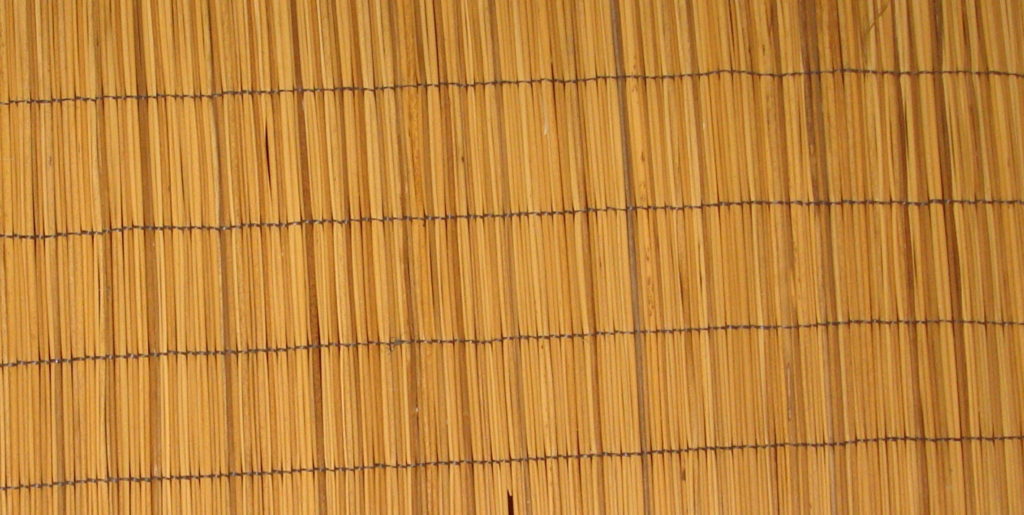
The heart which rejects these temptations will be like a white stone.
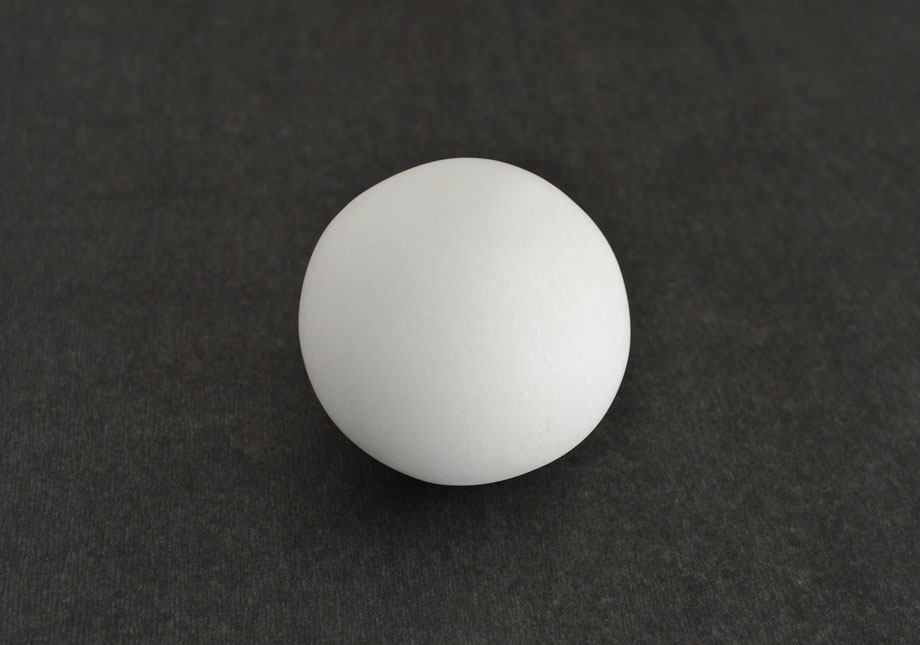
However, the heart that accepts these temptations and gives in to them becomes like a black, turned over vessel. Imagine something like this (but turned over):
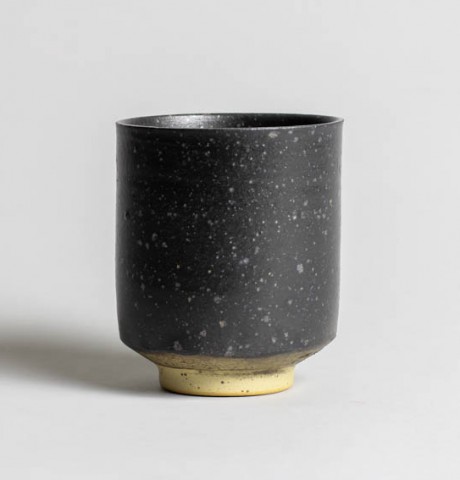
[Now, this isn’t an accurate representation of what is mentioned but it will give you a general idea of what is meant.]
Does anyone want a heart like this? I don’t think so.
This is what falling into temptations does to the heart though. So, we need to be careful, safeguard our iman and reject evil things so that our hearts become like this:
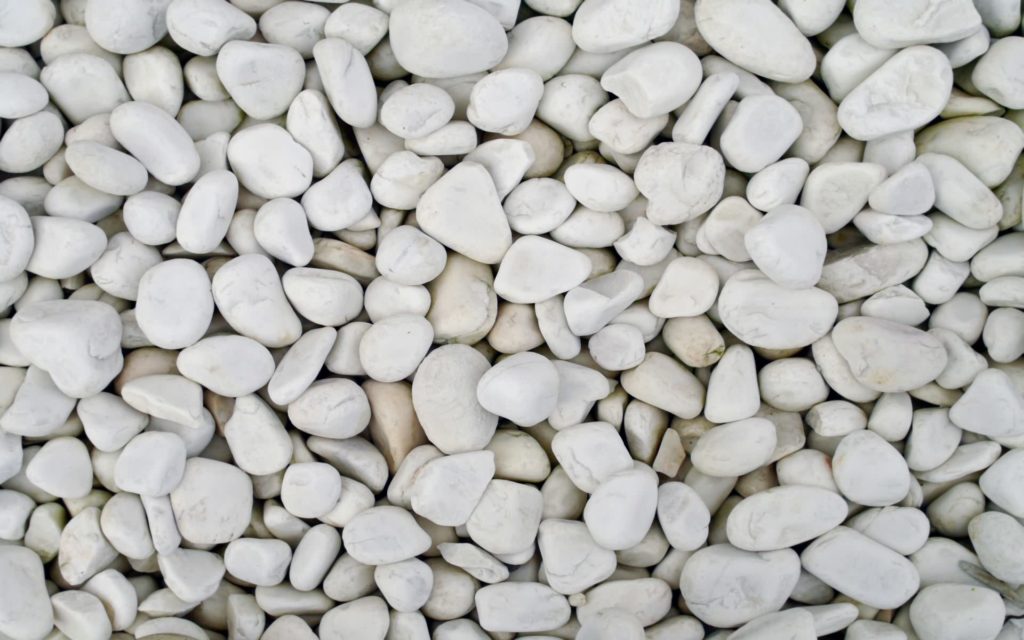
Another example that has been mentioned in the Sunnah is the example of the moon and the clouds.
عن علي رضي اللع عنه قال: قال النبي صلى الله عليه وسلم: ما من القلوب قلبٌ إلا و له سحابةٌ كسحابةِ القمرِ ، بينما القمرُ يُضيءُ إذ عَلَتْه سحابةٌ ، فأظلَم ، إذ تجلَّتْ
Ali (radiallahu anhu) narrated: The Prophet (sallalahu alaihi wasallam): “There is no heart that does not have clouds like the clouds that cover the moon. When the cloud covers it, it is dark, and when the cloud moves away it shines.” [Sahih Al-Jaami, Hadeeth No. 5682]
So, imagine the moon covered with clouds.
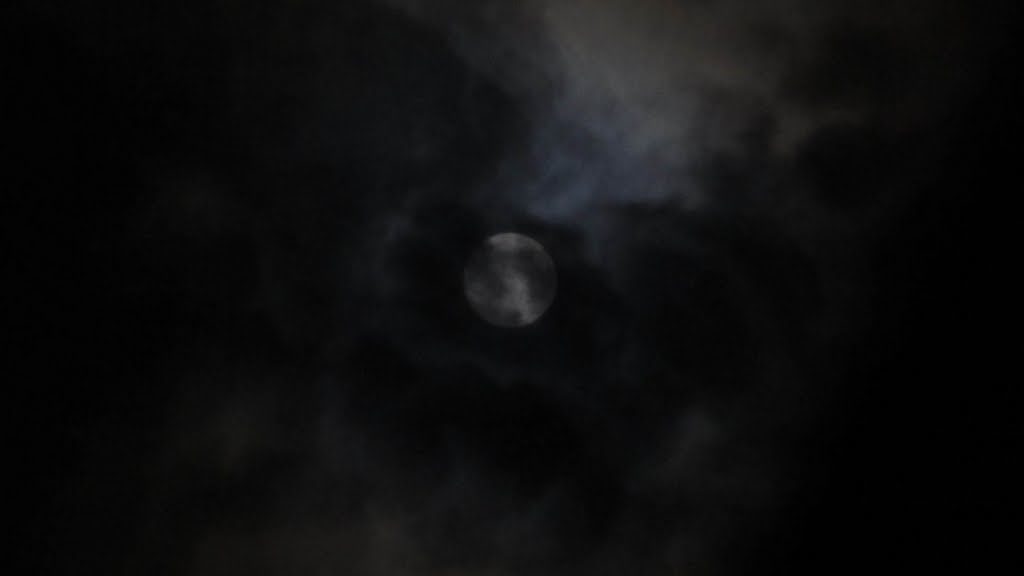
Pretty dark, isn’t it?
Now, look at what happens when the clouds move away.
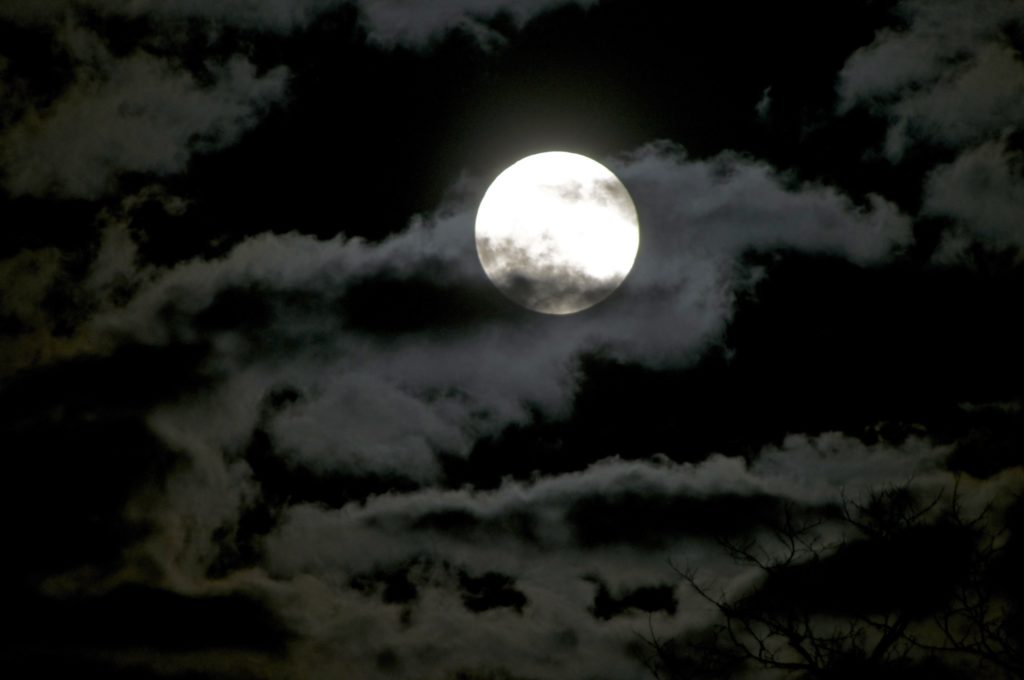
Much better, right?
Now, look at how bright the moon is when it is completely uncovered.

Beautiful, isn’t it? Wouldn’t you want your heart to shine that brightly?
If so, you need to make sure that there are no “clouds” covering it. These clouds are sins which cover the heart and cause one’s iman to decrease.
When a person sins, their heart is slowly getting covered by clouds of sin. Look at this video and imagine that the moon is actually your heart.
Scary, isn’t it? This is why we need to work on our hearts and on our iman.
This isn’t the only example of what happens to the heart when one sins.
عَنْ أَبِي هُرَيْرَةَ، عَنْ رَسُولِ اللَّهِ صلى الله عليه وسلم قَالَ : إِنَّ الْعَبْدَ إِذَا أَخْطَأَ خَطِيئَةً نُكِتَتْ فِي قَلْبِهِ نُكْتَةٌ سَوْدَاءُ فَإِذَا هُوَ نَزَعَ وَاسْتَغْفَرَ وَتَابَ سُقِلَ قَلْبُهُ وَإِنْ عَادَ زِيدَ فِيهَا حَتَّى تَعْلُوَ قَلْبَهُ وَهُوَ الرَّانُ الَّذِي ذَكَرَ اللَّهُ : ( كلاَّ بَلْ رَانَ عَلَى قُلُوبِهِمْ مَا كَانُوا يَكْسِبُونَ )
Abu Hurairah (radiallahu anhu) narrated that the Messenger of Allah (sallallahu alaihi wasallam) said: “Verily, when the slave (of Allah) commits a sin, a black spot appears on his heart. When he refrains from it, seeks forgiveness and repents, his heart is polished clean. But if he returns, it increases until it covers his entire heart. And that is the ‘Ran’ which Allah mentioned:
كَلَّا ۖ بَلْ ۜ رَانَ عَلَىٰ قُلُوبِهِم مَّا كَانُوا يَكْسِبُونَ
‘Nay, but on their hearts is the Ran which they used to earn.’” [Surah Al-Mutaffifeen (83) : 14]
[Sunan At-Tirmidhi, Hadeeth No. 3334. Graded “hasan” (good) by Al-Albani.]
So, this is what a pure heart looks like.
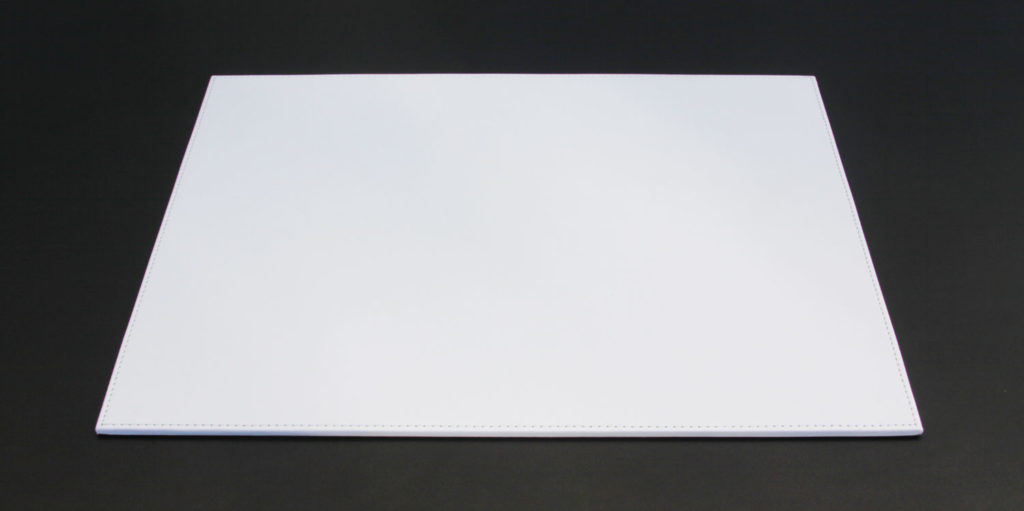
It’s completely white.
When a person sins, the heart starts getting black spots on it.
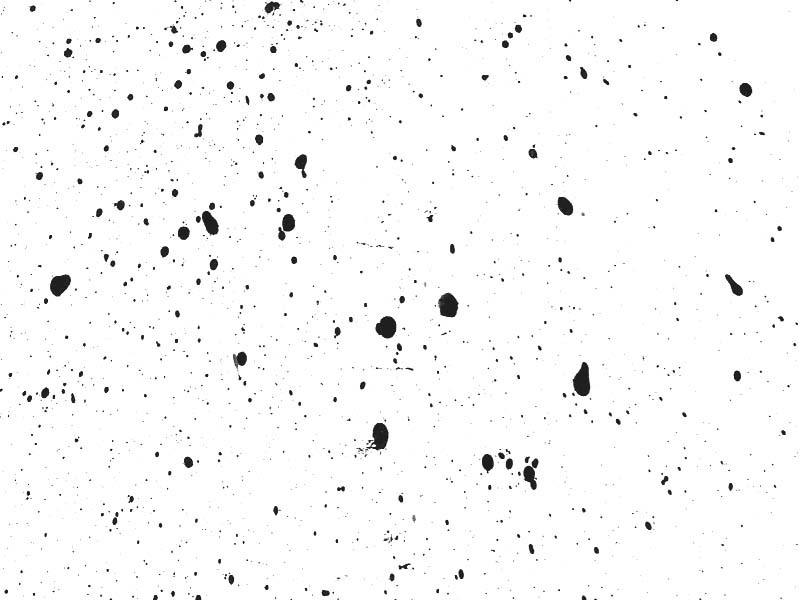
If a person repents, the spots go away. If he continues sinning, the black spots increase.
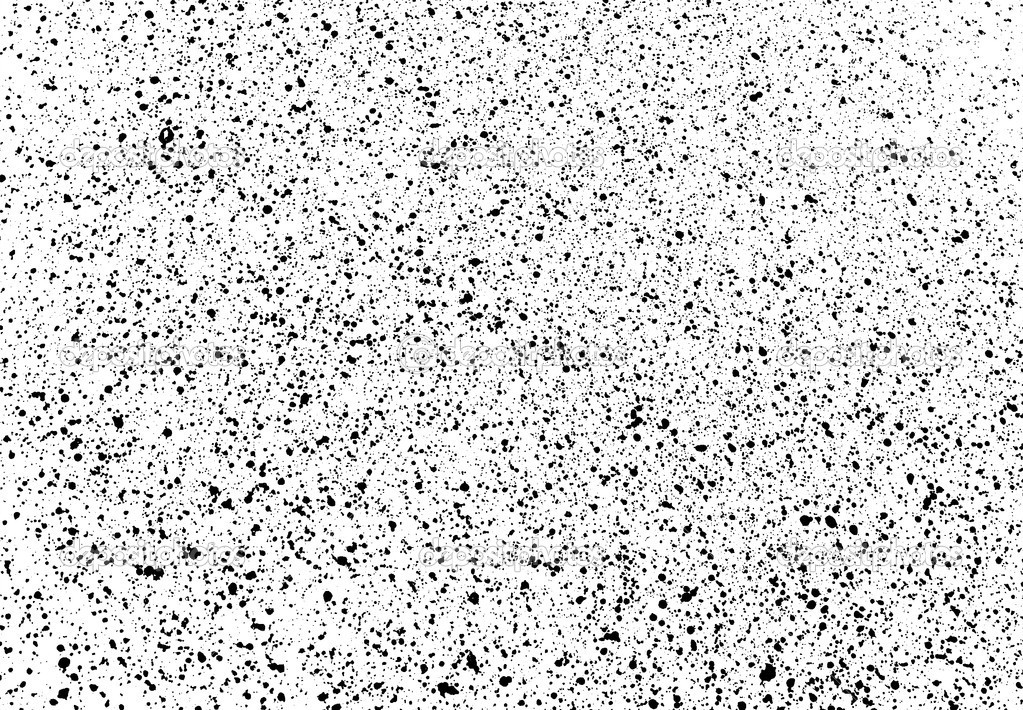
Eventually, the heart will be completely covered by the black spots and this is the “Ran”.

Imagine having a heart as black as that.
This is the devastating effect that sins and low iman have on the heart. And you know? This is just the first level. If a person keeps sinning, it gets worse.
خَتَمَ اللَّـهُ عَلَىٰ قُلُوبِهِمْ وَعَلَىٰ سَمْعِهِمْ ۖ وَعَلَىٰ أَبْصَارِهِمْ غِشَاوَةٌ ۖ وَلَهُمْ عَذَابٌ عَظِيمٌ
Allah has set a seal on their hearts and on their hearings, (i.e. they are closed from accepting Allah’s Guidance), and on their eyes there is a covering. Theirs will be a great torment. [Surah Al-Baqarah (2) : 7]
Ibn Kathir states in his explanation of this verse:
As-Suddi said that,
﴿خَتَمَ اللَّهُ﴾
(KhatamAllah) means, “Allah has sealed.” Qatadah said that this Ayah means, “Shaytan controlled them when they obeyed him. Therefore, Allah sealed their hearts, hearing and sight, and they could neither see the guidance nor hear, comprehend or understand.” Ibn Jurayj said that Mujahid said,
﴿خَتَمَ اللَّهُ عَلَى قُلُوبِهِمْ﴾
(Allah has set a seal on their hearts), “A stamp. It occurs when sin resides in the heart and surrounds it from all sides, and this submersion of the heart in sin constitutes a stamp, meaning a seal.” Ibn Jurayj also said that the seal is placed on the heart and the hearing. In addition, Ibn Jurayj said, that Abdullah bin Kathir narrated that Mujahid said, “The stain is not as bad as the stamp, the stamp is not as bad as the lock which is the worst type.” Al-Amash said, “Mujahid demonstrated with his hand while saying, `They used to say that the heart is just like this – meaning the open palm. When the servant commits a sin, a part of the heart will be rolled up – and he rolled up his index finger. When the servant commits another sin, a part of the heart will be rolled up’ – and he rolled up another finger, until he rolled up all of his fingers. Then he said, `Then, the heart will be sealed.’ Mujahid also said that this is the description of the Ran (refer to 83:14).””
The example of the hand is like this:
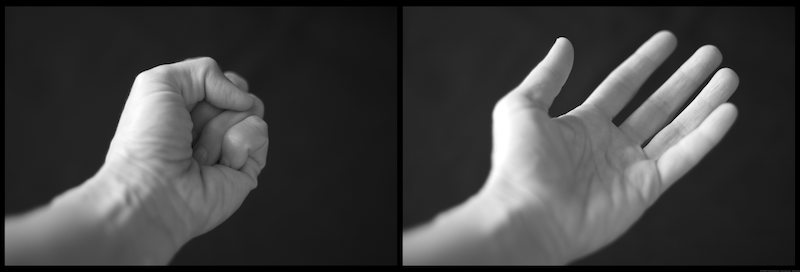
The hand is open initially i.e. the heart is clean. Then as the sins increase, the fingers continue to roll in until it is a fist i.e. the heart is sealed.
So, let me go through the levels again. The first is the stain (Ran).
كَلَّا ۖ بَلْ ۜ رَانَ عَلَىٰ قُلُوبِهِم مَّا كَانُوا يَكْسِبُونَ
‘Nay, but on their hearts is the Ran which they used to earn.’ [Surah Al-Mutaffifeen (83) : 14]
Then comes something worse which is the stamp or the seal (khatam or taba).
خَتَمَ اللَّـهُ عَلَىٰ قُلُوبِهِمْ وَعَلَىٰ سَمْعِهِمْ ۖ وَعَلَىٰ أَبْصَارِهِمْ غِشَاوَةٌ ۖ وَلَهُمْ عَذَابٌ عَظِيمٌ
Allah has set a seal on their hearts and on their hearings, (i.e. they are closed from accepting Allah’s Guidance), and on their eyes there is a covering. Theirs will be a great torment. [Surah Al-Baqarah (2) : 7]
فَبِمَا نَقْضِهِم مِّيثَاقَهُمْ وَكُفْرِهِم بِآيَاتِ اللَّـهِ وَقَتْلِهِمُ الْأَنبِيَاءَ بِغَيْرِ حَقٍّ وَقَوْلِهِمْ قُلُوبُنَا غُلْفٌ ۚ بَلْ طَبَعَ اللَّـهُ عَلَيْهَا بِكُفْرِهِمْ فَلَا يُؤْمِنُونَ إِلَّا قَلِيلًا
Because of their breaking the covenant, and of their rejecting the Ayaat (proofs, evidences, verses, lessons, signs, revelations, etc.) of Allah, and of their killing the Prophets unjustly, and of their saying: “Our hearts are wrapped (with coverings, i.e. we do not understand what the Messengers say)” – nay, Allah has set a seal upon their hearts because of their disbelief, so they believe not but a little. [Surah An-Nisaa (4) : 155]
Then comes the worst thing which is the lock (aqfaal).
أَفَلَا يَتَدَبَّرُونَ الْقُرْآنَ أَمْ عَلَىٰ قُلُوبٍ أَقْفَالُهَا
Do they not then think deeply in the Quran, or are their hearts locked up (from understanding it)? [Surah Muhammad (47) : 24]
Imagine one’s heart being like this:
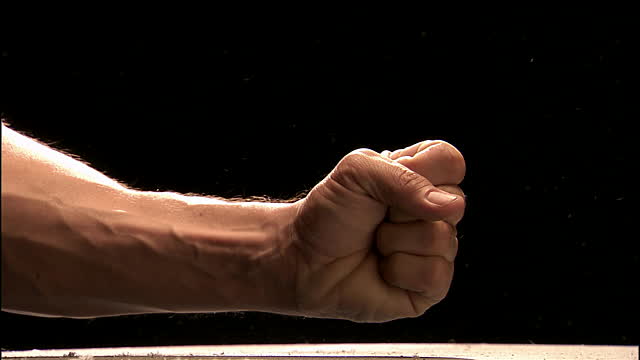
Doesn’t it feel like it’s something hard, not soft? Is this what we want our hearts to be like?
Unfortunately, some hearts can become REALLY hard.
ثُمَّ قَسَتْ قُلُوبُكُم مِّن بَعْدِ ذَٰلِكَ فَهِيَ كَالْحِجَارَةِ أَوْ أَشَدُّ قَسْوَةً ۚ وَإِنَّ مِنَ الْحِجَارَةِ لَمَا يَتَفَجَّرُ مِنْهُ الْأَنْهَارُ ۚ وَإِنَّ مِنْهَا لَمَا يَشَّقَّقُ فَيَخْرُجُ مِنْهُ الْمَاءُ ۚ وَإِنَّ مِنْهَا لَمَا يَهْبِطُ مِنْ خَشْيَةِ اللَّـهِ ۗ وَمَا اللَّـهُ بِغَافِلٍ عَمَّا تَعْمَلُونَ
Then, after that, your hearts were hardened and became as stones or even worse in hardness. And indeed, there are stones out of which rivers gush forth, and indeed, there are of them (stones) which split asunder so that water flows from them, and indeed, there are of them (stones) which fall down for fear of Allah. And Allah is not unaware of what you do. [Surah Al-Baqarah (2) : 74]
Nobody wants their heart to become like this:
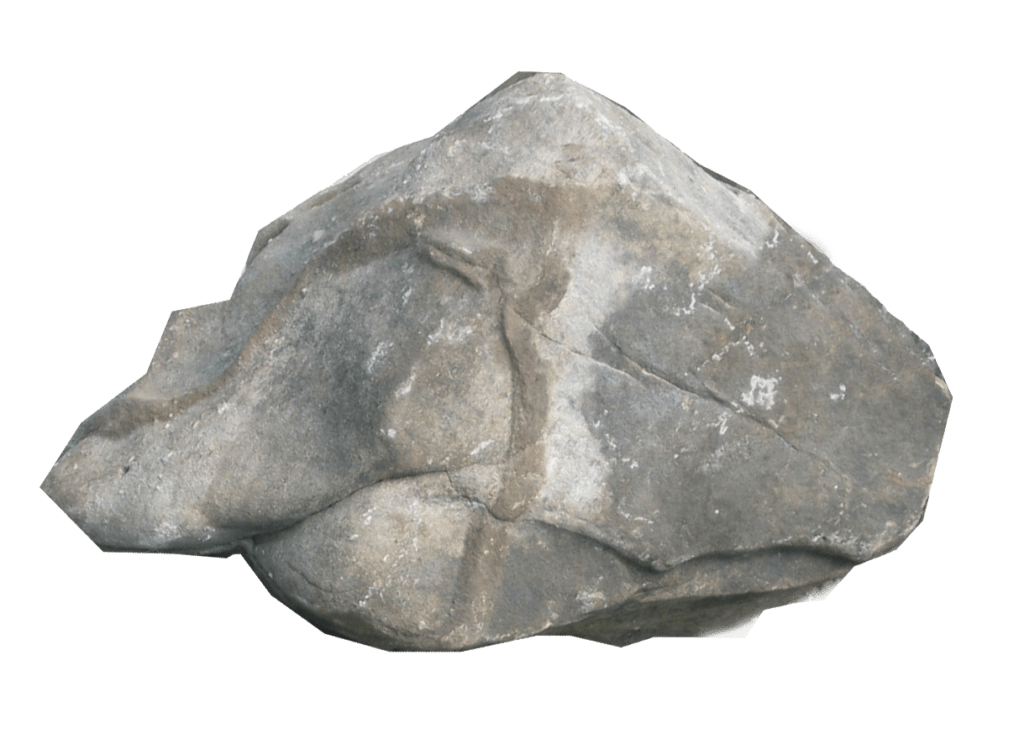
And yet, sadly this is what does tend to happen.
In order to not let that happen, we need to pay attention to what Allah has commanded us to do:
أَلَمْ يَأْنِ لِلَّذِينَ آمَنُوا أَن تَخْشَعَ قُلُوبُهُمْ لِذِكْرِ اللَّـهِ وَمَا نَزَلَ مِنَ الْحَقِّ وَلَا يَكُونُوا كَالَّذِينَ أُوتُوا الْكِتَابَ مِن قَبْلُ فَطَالَ عَلَيْهِمُ الْأَمَدُ فَقَسَتْ قُلُوبُهُمْ ۖ وَكَثِيرٌ مِّنْهُمْ فَاسِقُونَ
Has not the time come for the hearts of those who believe (in the Oneness of Allah) to be affected by Allah’s Reminder (this Quran), and that which has been revealed of the truth, lest they become as those who received the Scripture [the Taurah and the Injeel] before (i.e. Jews and Christians), and the term was prolonged for them and so their hearts were hardened? And many of them were Fasiqoon (rebellious, disobedient to Allah). [Surah Al-Hadeed (57) : 16]
So, the Quran is something that softens the hearts as does dua (supplication). The Prophet (sallalahu alaihi wasallam) asked for a heart that feared Allah:
عَنْ زَيْدِ بْنِ أَرْقَمَ، قَالَ لاَ أَقُولُ لَكُمْ إِلاَّ كَمَا كَانَ رَسُولُ اللَّهِ صلى الله عليه وسلم يَقُولُ كَانَ يَقُولُ : اللَّهُمَّ إِنِّي أَعُوذُ بِكَ مِنَ الْعَجْزِ وَالْكَسَلِ وَالْجُبْنِ وَالْبُخْلِ وَالْهَرَمِ وَعَذَابِ الْقَبْرِ اللَّهُمَّ آتِ نَفْسِي تَقْوَاهَا وَزَكِّهَا أَنْتَ خَيْرُ مَنْ زَكَّاهَا أَنْتَ وَلِيُّهَا وَمَوْلاَهَا اللَّهُمَّ إِنِّي أَعُوذُ بِكَ مِنْ عِلْمٍ لاَ يَنْفَعُ وَمِنْ قَلْبٍ لاَ يَخْشَعُ وَمِنْ نَفْسٍ لاَ تَشْبَعُ وَمِنْ دَعْوَةٍ لاَ يُسْتَجَابُ لَهَا
Zaid ibn Arqam (radiallahu anhu reported: I am not going to say anything but only that which Allah’s Messenger (sallallahu alaihi wasallam) used to say. He used to supplicate: Allahumma inni a’udhu bika minal-‘ajzi wal-kasali, wal-bukhli wal-harami, wa ‘adhabil-qabri. Allahumma ati nafsi taqwaha, wa zakkiha Anta khairu man zakkaha, Anta waliyyuha wa maulaha. Allahumma inni a’udhu bika min ‘ilmin la yanfau’, wa min qalbin la yakhsha’u, wa min nafsin la tashba’u, wa min da’watin la yustajabu laha’ [O Allah, I seek refuge in Thee from incapacity, from sloth, from cowardice, from miserliness, decrepitude and from torment of the grave. O Allah, grant to my soul the sense of righteousness and purify it, for Thou art the Best Purifier thereof. Thou art the Protecting Friend thereof, and Guardian thereof. O Allah, I seek refuge in Thee from the knowledge which does not benefit, from the heart that does not entertain the fear (of Allah), from the soul that does not feel contented and the supplication that is not responded.]” [Sahih Muslim, Hadeeth No. 6568]
6. We need to work towards having a clean, soft, iman-filled heart, along with doing righteous actions
And this brings me to my final point.
Instead of saying that “Don’t judge me, my heart is clean”, we need to actually work towards achieving a clean heart and increasing our iman. The way to do that is by doing good deeds and repenting for our sins. It’s as simple as that.
There are SO many good deeds that one can do, so we should try to do what we can and not look down at any good deed.
عَنْ أَبِي ذَرٍّ، قَالَ قَالَ لِيَ النَّبِيُّ صلى الله عليه وسلم : لاَ تَحْقِرَنَّ مِنَ الْمَعْرُوفِ شَيْئًا وَلَوْ أَنْ تَلْقَى أَخَاكَ بِوَجْهٍ طَلْقٍ
Abu Dharr (radiallahu anhu) reported: Allah’s Messenger (sallallahu alaihi wasallam) said to me: “Do not belittle any good deed, even your meeting with your brother (Muslim) with a cheerful face.” [Sahih Muslim, Hadeeth No. 6359]
A good, easy deed that a person can do to clean their heart and increase their iman is dua (supplication). That is a VERY easy way.
What do we need to ask Allah for? Well, firstly, we need to ask Allah to soften our hearts. I’ve already mentioned the dua of the Prophet (sallallahu alaihi wasallam) above.
We also need to ask Him to clean our hearts.
عَنْ عَائِشَةَ ـ رضى الله عنها ـ أَنَّ النَّبِيَّ صلى الله عليه وسلم كَانَ يَقُولُ : اللَّهُمَّ إِنِّي أَعُوذُ بِكَ مِنَ الْكَسَلِ وَالْهَرَمِ، وَالْمَأْثَمِ وَالْمَغْرَمِ، وَمِنْ فِتْنَةِ الْقَبْرِ وَعَذَابِ الْقَبْرِ، وَمِنْ فِتْنَةِ النَّارِ وَعَذَابِ النَّارِ، وَمِنْ شَرِّ فِتْنَةِ الْغِنَى، وَأَعُوذُ بِكَ مِنْ فِتْنَةِ الْفَقْرِ، وَأَعُوذُ بِكَ مِنْ فِتْنَةِ الْمَسِيحِ الدَّجَّالِ، اللَّهُمَّ اغْسِلْ عَنِّي خَطَايَاىَ بِمَاءِ الثَّلْجِ وَالْبَرَدِ، وَنَقِّ قَلْبِي مِنَ الْخَطَايَا، كَمَا نَقَّيْتَ الثَّوْبَ الأَبْيَضَ مِنَ الدَّنَسِ، وَبَاعِدْ بَيْنِي وَبَيْنَ خَطَايَاىَ كَمَا بَاعَدْتَ بَيْنَ الْمَشْرِقِ وَالْمَغْرِبِ
Narrated Aishah (radiallahu anha): The Prophet (sallallahu alaihi wasallam) used to say, “O Allah! I seek refuge with You from laziness and geriatric old age, from all kinds of sins and from being in debt; from the affliction of the Fire and from the punishment of the Fire and from the evil of the affliction of wealth; and I seek refuge with You from the affliction of poverty, and I seek refuge with You from the affliction of Al-Maseeh Ad-Dajjal. O Allah! Wash away my sins with the water of snow and hail, and cleanse my heart from all the sins as a white garment is cleansed from the filth, and let there be a long distance between me and my sins, as You made East and West far from each other.” [Sahih Al-Bukhari, Volume No. 8, Hadeeth No. 379]
So, imagine a filthy white garment:
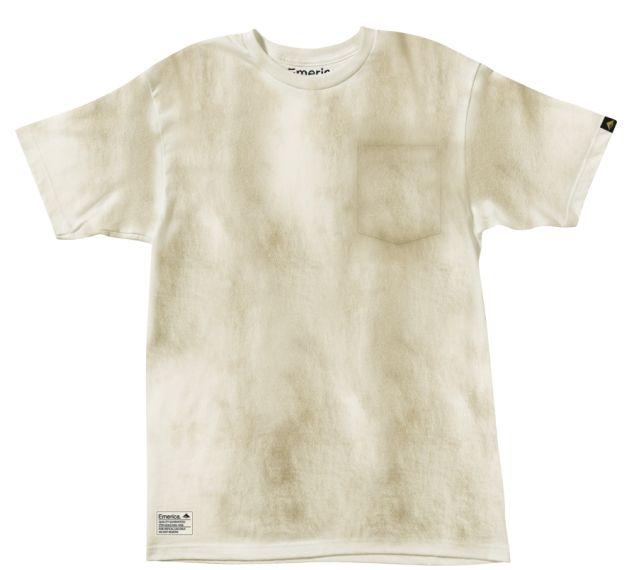
After it’s cleaned, it looks like this:
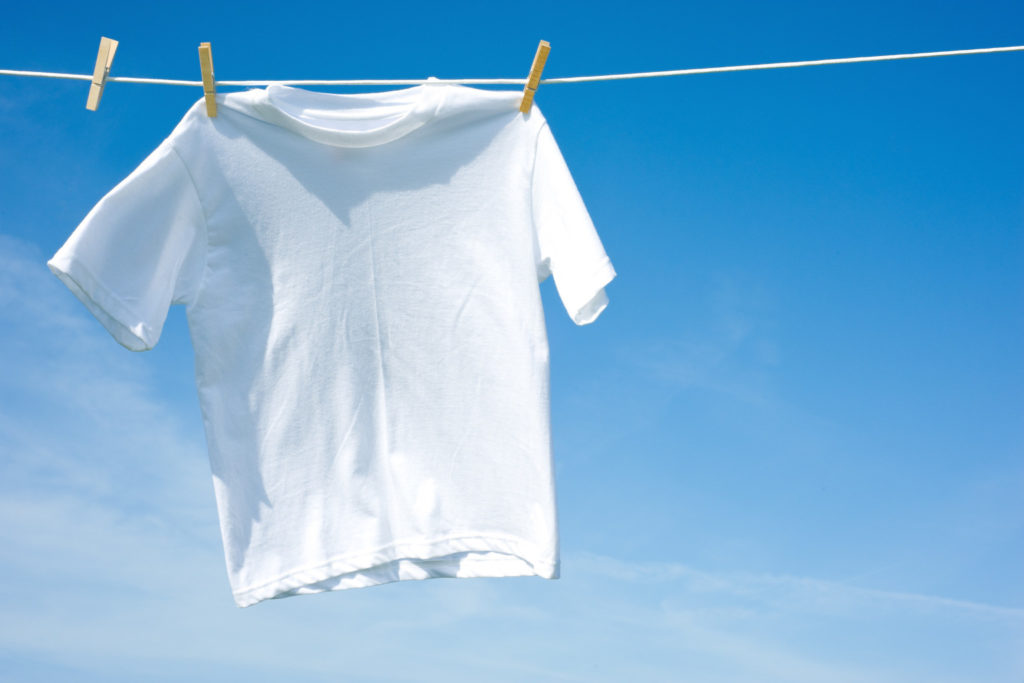
That’s what this dua will do for our heart so we need to say it.
We also need to ask Allah to renew our iman.
عن ابن عمرو رضي الله عنهما قال: قال النبي صلى الله عليه وسلم: إن الإيمان ليخلق في جوف أحدكم كما يخلق الثوب ، فاسألوا الله تعالى : أن يجدد الإيمان في قلوبكم
Ibn Amr (radiallahu anhuma) narrated: The Prophet (salallahu alaihi wasallam) said: “Iman (faith) wears out in the heart of any one of you just as garments wear out, so ask Allah to renew the faith in your hearts.” [Sahih Al-Jaami, Hadeeth No. 1590.]
We need to love iman and ask for it to be beautified in our hearts.
وَاعْلَمُوا أَنَّ فِيكُمْ رَسُولَ اللَّـهِ ۚ لَوْ يُطِيعُكُمْ فِي كَثِيرٍ مِّنَ الْأَمْرِ لَعَنِتُّمْ وَلَـٰكِنَّ اللَّـهَ حَبَّبَ إِلَيْكُمُ الْإِيمَانَ وَزَيَّنَهُ فِي قُلُوبِكُمْ وَكَرَّهَ إِلَيْكُمُ الْكُفْرَ وَالْفُسُوقَ وَالْعِصْيَانَ ۚ أُولَـٰئِكَ هُمُ الرَّاشِدُونَ
فَضْلًا مِّنَ اللَّـهِ وَنِعْمَةً ۚ وَاللَّـهُ عَلِيمٌ حَكِيمٌ
And know that, among you there is the Messenger of Allah. If he were to obey you (i.e. follow your opinions and desires) in much of the matter, you would surely be in trouble, but Allah has endeared the Faith to you and has beautified it in your hearts, and has made disbelief, wickedness and disobedience (to Allah and His Messenger) hateful to you. These! They are the rightly guided ones. (This is) a Grace from Allah and His Favour. And Allah is All-Knowing, All-Wise. [Surah Al-Hujurat (49) :7-8]
The Prophet (sallallahu alaihi wasallam) used to ask Allah to beautify him with iman.
عن عَطَاءُ بْنُ السَّائِبِ، عَنْ أَبِيهِ، قَالَ صَلَّى بِنَا عَمَّارُ بْنُ يَاسِرٍ صَلاَةً فَأَوْجَزَ فِيهَا فَقَالَ لَهُ بَعْضُ الْقَوْمِ لَقَدْ خَفَّفْتَ أَوْ أَوْجَزْتَ الصَّلاَةَ . فَقَالَ أَمَّا عَلَى ذَلِكَ فَقَدْ دَعَوْتُ فِيهَا بِدَعَوَاتٍ سَمِعْتُهُنَّ مِنْ رَسُولِ اللَّهِ صلى الله عليه وسلم فَلَمَّا قَامَ تَبِعَهُ رَجُلٌ مِنَ الْقَوْمِ هُوَ أَبِي غَيْرَ أَنَّهُ كَنَى عَنْ نَفْسِهِ فَسَأَلَهُ عَنِ الدُّعَاءِ ثُمَّ جَاءَ فَأَخْبَرَ بِهِ الْقَوْمَ : اللَّهُمَّ بِعِلْمِكَ الْغَيْبَ وَقُدْرَتِكَ عَلَى الْخَلْقِ أَحْيِنِي مَا عَلِمْتَ الْحَيَاةَ خَيْرًا لِي وَتَوَفَّنِي إِذَا عَلِمْتَ الْوَفَاةَ خَيْرًا لِي اللَّهُمَّ وَأَسْأَلُكَ خَشْيَتَكَ فِي الْغَيْبِ وَالشَّهَادَةِ وَأَسْأَلُكَ كَلِمَةَ الْحَقِّ فِي الرِّضَا وَالْغَضَبِ وَأَسْأَلُكَ الْقَصْدَ فِي الْفَقْرِ وَالْغِنَى وَأَسْأَلُكَ نَعِيمًا لاَ يَنْفَدُ وَأَسْأَلُكَ قُرَّةَ عَيْنٍ لاَ تَنْقَطِعُ وَأَسْأَلُكَ الرِّضَاءَ بَعْدَ الْقَضَاءِ وَأَسْأَلُكَ بَرْدَ الْعَيْشِ بَعْدَ الْمَوْتِ وَأَسْأَلُكَ لَذَّةَ النَّظَرِ إِلَى وَجْهِكَ وَالشَّوْقَ إِلَى لِقَائِكَ فِي غَيْرِ ضَرَّاءَ مُضِرَّةٍ وَلاَ فِتْنَةٍ مُضِلَّةٍ اللَّهُمَّ زَيِّنَّا بِزِينَةِ الإِيمَانِ وَاجْعَلْنَا هُدَاةً مُهْتَدِينَ
Ata bn As-Saaib narrated that his father said:”Ammar bin Yasir led us in prayer and he made it brief. Some of the people said to him: ‘You made the prayer sort (or brief).’ He said: ‘Nevertheless I still recited supplications that I heard from the Messenger of Allah (sallallahu alaihi wasallam).’ When he got up and left, a man- he was my father but he did not name himself- followed him and asked him about that supplication, then he came and told the people. “Allahumma bi ‘ilmikal-ghaiba wa qudratika ‘alal-khalqi ahini ma ‘alimtal-hayata khairan li, wa tawaffani idha ‘alimtal-wafata khairan li. Allahumma as’aluka khashyataka fil-ghaibi wash-shahadati wa as’aluka kalimatul-aqua fir-rida’i wal ghadab, wa as’alukal-qasda fil faqr wal-ghina, wa as’aluka na’iman la yanfadu wa as’aluka qurrata ainan la tanqati’u wa as’alukar-rida’i ba’dal-qada’i wa as’aluka bardal ‘aishi ba’dal-mawti, wa as’aluka ladhatan-nazari ila wajhika wash-shawqa ila liqa’ika fi fitnatin mudillatin, Allahumma zayyina dizinatil-imani waj’alna hudatan muhtadin (O Allah, by Your knowledge of the unseen and Your power over creation, keep me alive so long as You know that living is good for me and cause me to die when You know that death is better for me. O Allah, cause me to fear You in secret and in public. I ask You to make me true in speech in times of pleasure and of anger. I ask You to make me moderate in times of wealth and poverty. And I ask You for everlasting delight and joy that will never cease. I ask You to make me pleased with that which You have decreed and for an easy life after death. I askYou for the sweetness of looking upon Your face and a longing to meet You in a manner that does not entail a calamity that will bring about harm or a trial that will cause deviation. O Allah, beautify us with the adornment of faith and make us among those who guide and are rightly guided.” [Sunan An-Nasai, Hadeeth No. 1306. Graded “sahih” (authentic) by Al-Albani.]
Imagine a dark room.

Imagine some light seeping in.
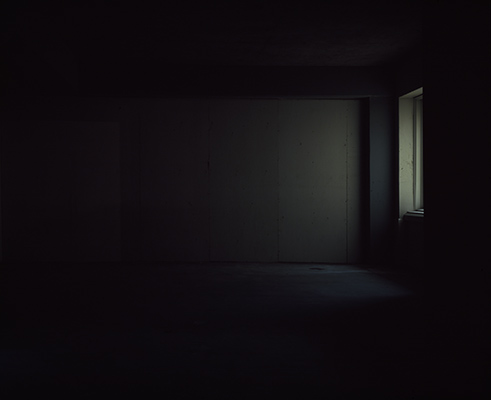
Imagine even more light seeping in.

And even more light seeping in.
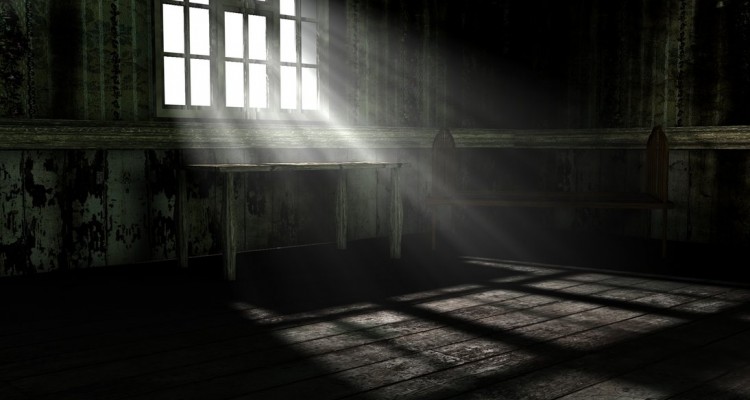
That’s what happens when iman enters the heart – it lights it up.
So, a well lit room would look like this.

This is what we want our hearts to look like – beautiful and full of light.
Iman doesn’t just cause the heart to light up. It also causes the heart to be content.
الَّذِينَ آمَنُوا وَتَطْمَئِنُّ قُلُوبُهُم بِذِكْرِ اللَّـهِ ۗ أَلَا بِذِكْرِ اللَّـهِ تَطْمَئِنُّ الْقُلُوبُ
“Those who believe (in the Oneness of Allah), and whose hearts find rest in the remembrance of Allah, Verily, in the remembrance of Allah do hearts find rest.” [Surah Ar-Rad (13) : 28]
So, the one who wants his heart to be content needs to remember Allah frequently.
Finally and most importantly, we need to ask Allah to keep our hearts steadfast.
عَنْ شَهْرُ بْنُ حَوْشَبٍ، قَالَ قُلْتُ لأُمِّ سَلَمَةَ يَا أُمَّ الْمُؤْمِنِينَ مَا كَانَ أَكْثَرُ دُعَاءِ رَسُولِ اللَّهِ صلى الله عليه وسلم إِذَا كَانَ عِنْدَكِ قَالَتْ كَانَ أَكْثَرُ دُعَائِهِ : يَا مُقَلِّبَ الْقُلُوبِ ثَبِّتْ قَلْبِي عَلَى دِينِكَ . قَالَتْ قُلْتُ يَا رَسُولَ اللَّهِ مَا لأَكْثَرِ دُعَائِكَ يَا مُقَلِّبَ الْقُلُوبِ ثَبِّتْ قَلْبِي عَلَى دِينِكَ قَالَ : يَا أُمَّ سَلَمَةَ إِنَّهُ لَيْسَ آدَمِيٌّ إِلاَّ وَقَلْبُهُ بَيْنَ أُصْبُعَيْنِ مِنْ أَصَابِعِ اللَّهِ فَمَنْ شَاءَ أَقَامَ وَمَنْ شَاءَ أَزَاغَ . فَتَلاَ مُعَاذٌ : ( ربَّنَا لاَ تُزِغْ قُلُوبَنَا بَعْدَ إِذْ هَدَيْتَنَا )
Shahr ibn Hawshab said: “I said to Umm Salamah (radiallahu anha): ‘O Mother of the Believers! What was the supplication that the Messenger of Allah (sallallahu alaihi wasallam) said most frequently when he was with you?’
She said: ‘The supplication he said most frequently was:
يَا مُقَلِّبَ الْقُلُوبِ ثَبِّتْ قَلْبِي عَلَى دِينِكَ
“Yaa Muqallib Al-Quloob Thabbit Qalbee Alaa Deenik (O Changer of Hearts, keep my heart steadfast on Your religion).”‘
She said: ‘So I said: “O Messenger of Allah, why do you supplicate so frequently: ‘O Changer of hearts, keep my heart steadfast on Your religion.’? He said: ‘O Umm Salamah! Verily, there is no human being except that his heart is between Two Fingers of the Fingers of Allah, so whomever He wills He makes steadfast, and whomever He wills He causes to deviate.”‘
So (one of the narrators) Muadh recited:
رَبَّنَا لَا تُزِغْ قُلُوبَنَا بَعْدَ إِذْ هَدَيْتَنَا
“O our Lord, do not cause our hearts to deviate after You have guided us. [Surah Aal-Imran (3) : 8]”
[Jaami At-Tirmidhi, Hadeeth No. 3522. Graded “sahih” (authentic) by Al-Albani.]
When the heart deviates, iman wears out, so we need to keep saying the above mentioned dua all the time.
Here are some resources to help with increasing iman and working on the heart:
Causes Behind the Increase and Decrease of Iman by Shaikh Abdur Razzaq Al-Abbad
Weakness of Faith by Shaikh Saleh Al-Munajjid (of IslamQA fame)
Diseases of the Hearts and their cures by Imam Ibn Taimiyah (rahimahullah)
Hardening of the Heart by Dr. Bilal Philips
So, I’ll ask again: Has your iman worn out? Is it like this:
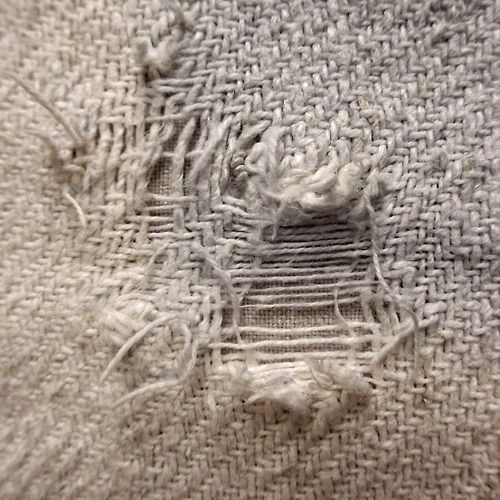
If so, then ask Allah to renew it and work towards cleaning your heart and increasing in good deeds.
